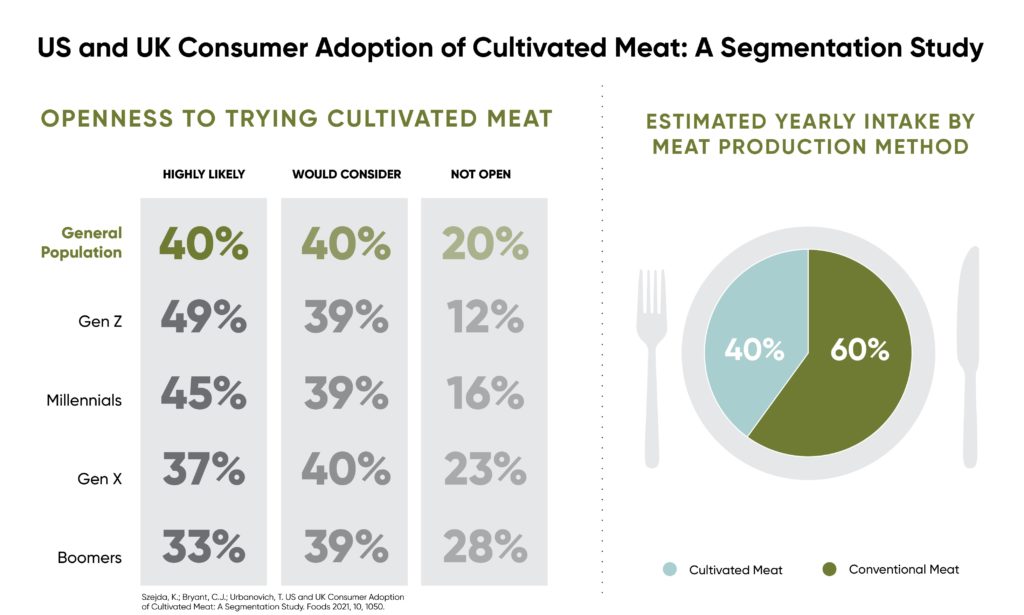
Just a few years ago, cultured meat (aka cultivated meat, lab-grown meat, cell-based meat) seemed as far away as flying cars. But today, like flying cars, meat grown outside of an animal may be a lot closer than we think.
Late last year, Eat Just received the world’s first regulatory approval for a cultured meat product (chicken) in Singapore, where the product is currently sold in one restaurant. And just today, UPSIDE Foods (formerly known as Memphis Meats) announced that it’s “now ready for business.” Pending regulatory approval, UPSIDE Foods plans to release its first consumer product (also chicken) later this year.
The question is: What will consumers think? And the answer, according to new research published in the journal Foods, is that most consumers are willing to give it a try.
The study, which surveyed more than 4,000 people in the US and UK, found that 80% of people are either “highly likely” or “would consider” trying cultivated meat. Only 2 in 10 people said they weren’t open to it. Most of the consumers hadn’t heard of cultivated meat before the survey, but once they understood what it was, they could imagine a future where 60% of their meat came from conventional sources while 40% was cultivated.
The researchers also found generational differences. Younger consumers said they’re more likely to try cultivated meat than older consumers. Respondents who were male, more liberal, and more educated were also more likely to be among the early triers.
“The results suggest that cultivated meat is likely to be widely accepted by the general public, especially the younger generations and an eager group of early adopters who appreciate its benefits across a wide range of social issues,” said lead author Karl Szejda of Arizona State University and North Mountain Consulting Group in a press release. “These groups tend to embrace change and need little encouragement to try new food innovations. Additionally, we observed an increase in support for the technology once consumers had access to additional information, underscoring the importance of effective science communication for consumer adoption.”








